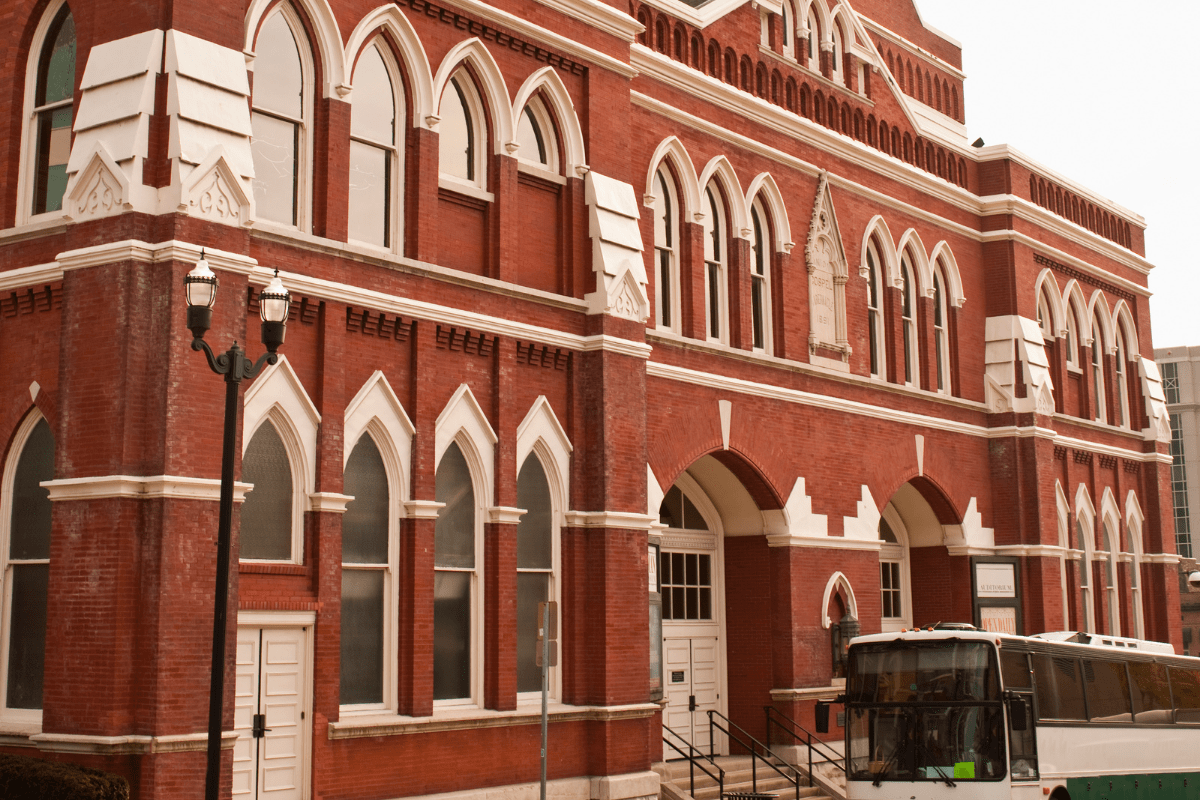Tennessee's higher education scene is having a moment, and not just because Taylor Swift name-drops Vanderbilt in her songs. From free community college programs that actually exist (not a typo) to a rural engineering school that somehow beats fancy private colleges in salary outcomes, the Volunteer State's 100+ colleges offer surprisingly good deals if you know where to look.
The money talk nobody wants to have (but we're having it anyway)
Let's rip off the Band-Aid: college costs in Tennessee range from "maybe I can swing this" to "did they add an extra zero by mistake?" But here's where it gets interesting.
Tennessee Tech University in tiny Cookeville delivers the highest return on investment among the state's public universities at $453,000 over 20 years. Yes, you read that right. A school most people outside Tennessee have never heard of beats the flagship university in long-term financial payoff. Their engineering graduates earn more starting salaries than grads from schools with football stadiums you've seen on ESPN.
Public university tuition runs from $8,568 at Tennessee State to $13,812 at UT Knoxville for in-state students. Out-of-state? You're looking at up to $32,956, which might make you reconsider that "Tennessee is far from home" argument with your parents. Room and board adds another $10,000 to $19,000, because apparently residence halls now need to compete with luxury apartments. UT Knoxville charges $19,414 for housing, well above the national average, presumably because proximity to Dolly Parton's homeland commands a premium.
Private schools play a different game entirely. Vanderbilt's sticker price of $67,498 could buy you a really nice truck, but here's the plot twist: they meet 100% of demonstrated need, bringing the average net price down to $20,210. That's less than many families pay at public universities. Rhodes College in Memphis asks for $57,110 but typically provides around $36,832 in aid. Even Belmont, starting at $41,320, helps out 93% of its students financially.
The free college programs that actually exist
Tennessee decided to do something radical: make community college free. Not "free with 47 asterisks" but actually free through two programs:
Tennessee Promise covers recent high school graduates who maintain a 2.0 GPA and complete 8 hours of community service per semester. That's literally it. Keep a C average, volunteer at the animal shelter once a month, and boom… free college.
Tennessee Reconnect serves adults without degrees, and nearly 900,000 Tennesseans qualify. No age limit, no "but you made bad choices at 18" penalties. Just free community college for adults who want to finish what they started or start something new.
The UT Promise program now provides free tuition for two-thirds of Tennessee high school seniors at the Knoxville campus. Not reduced. Not discounted. Free.
Yet somehow, 58% of students who drop out still cite affordability as their main reason. How does that math work? Hidden costs, my friends. Course materials alone can equal another semester's tuition. That "required" $300 textbook you'll open twice? The $200 access code for online homework? The mandatory meal plan even if you live off campus? They add up faster than your Spotify Wrapped minutes.
Finding your academic home (without losing your mind)
The heavy hitters
Vanderbilt University sits at the top of Tennessee's academic food chain, ranked #18 nationally with a 6% acceptance rate that makes getting in harder than explaining cryptocurrency to your grandma. Middle 50% ACT scores range from 34-36, which is "I never got below an A" territory. But if you make it in, you're looking at median earnings of $73,909 six years after graduation, and their Peabody College of Education ranks #2 nationally.
The University of Tennessee, Knoxville serves as the state's flagship with 38,728 students and a more reasonable 46% acceptance rate. Students typically score between 25-31 on the ACT with a 4.19 weighted GPA. UT's supply chain management program ranks #3 among public universities nationally, which sounds boring until you realize these grads get recruited by companies that literally run the world's economy. Plus, their pre-med students have a 70% medical school acceptance rate, crushing the national average.
The surprising standouts
Here's where things get weird in the best way. Middle Tennessee State University in Murfreesboro runs the only AACSB-accredited Music Business program in the country. Think about that… it's the only place where studying the music industry counts as real business education. Their recording industry program gets love from Billboard and Rolling Stone, and their supply chain management master's ranks #2 nationally.
Tennessee Tech keeps popping up like that friend who secretly got really successful. Besides that crazy ROI number, they're launching a nuclear engineering program, their computer science program jumped 56 spots in rankings, and their engineering ranks among the top two public programs statewide. Early career earnings for their CS grads average $63,180, which buys a lot of avocado toast.
The University of Memphis leverages its location with R1 research designation and partnerships through the FedEx Institute of Technology. With 97% of students receiving some financial assistance and the state's most diverse student body (38.3% white, 34.7% Black), Memphis offers urban opportunities without urban prices.
The specialty players worth considering
Tennessee's two main HBCUs serve distinct missions:
- Tennessee State University: Only state-funded HBCU
- R2 research status sounds fancy (because it is)
- Produces more underrepresented engineers than any Tennessee school
- 93% acceptance rate means they believe in chances
- Recent board replacement drama you can google later
Fisk University in Nashville ranks as Forbes' #3 HBCU nationally. Oprah went there. The Jubilee Singers literally saved the school from bankruptcy in 1871 by touring and singing. That's the kind of school spirit you can't manufacture.
Rhodes College brings liberal arts energy to Memphis with just 2,000 students on what Princeton Review called America's most beautiful campus. They send 75% of students abroad, which means your Instagram game will be strong. At $57,110 minus substantial aid, you're paying for small classes and professors who actually know your name.
East Tennessee State University in Johnson City runs a medical school and specialized programs like the country's only Substance Abuse Nurse Practitioner Residency. They're also the "Top Adventure College in the Southeast," which sounds made up but isn't.
Austin Peay State University recorded Tennessee's highest enrollment growth at 8.2% in 2024, largely thanks to serving military families through their Fort Campbell campus. A quarter of their students have military connections, so they actually understand why you need to register for classes from three time zones away.
What success actually looks like (spoiler: it's complicated)
Graduation rates tell one story, but not the whole story. Vanderbilt hits 89% four-year graduation while Tennessee State struggles at 21%. The state average of 58.8% for six-year graduation sounds bad until you realize the national average isn't much better.
But here's where it gets interesting: Tennessee Tech's 35% four-year graduation rate comes with the highest median salaries among regional public universities at $43,759. Sometimes taking longer to graduate while working or doing co-ops pays off literally.
Ten years after graduation, UT Knoxville alumni earn $56,300 annually, beating the national median by 64%. Tennessee Tech grads make $43,400 (27% above average), while MTSU ($42,300) and UT Chattanooga ($40,600) also exceed national medians.
Field matters more than overall rankings. UT Knoxville computer science graduates average $70,193 early career. MTSU computer science alumni work at Google, Microsoft, Meta, HCA, Deloitte, and Caterpillar. Belmont nursing graduates achieve 96% job placement, which is basically a guarantee in healthcare's current desperation for workers.
The placement success stories nobody talks about
Nashville's healthcare industry, anchored by the nation's largest for-profit hospital companies, creates unique opportunities for everything from nursing to healthcare IT to hospital administration. Memphis's FedEx and AutoZone headquarters offer logistics and business careers that sound boring but pay really well.
Even Tennessee Tech reports over 50% of graduates saying their careers "make the world better," which either means they're doing important work or have excellent therapists.
Real student life beyond the brochures
Greek life and its alternatives
Greek participation varies wildly:
- Vanderbilt: 40% join 30 organizations
- UT Knoxville: 29% participation, 9,000 students
- Tennessee Tech: 21 chapters including the state's only coed Latino organization
- Tennessee State: Limited presence with historically Black organizations
These organizations provide networking and leadership development, though costs and time commitments can exclude lower-income students. If Greek life isn't your thing, MTSU offers 350 student organizations, because apparently there's a club for competitive napkin folding these days.
Diversity by the numbers
Tennessee State's HBCU designation creates a 76.8% Black student body with 60% receiving Pell Grants. UT Knoxville remains 79% white with 17% low-income representation. Out-of-state enrollment ranges from 16.7% at UT Knoxville to 43.7% at Tennessee State, which draws students from 42 countries.
First-generation students make up about 20% at most schools but face a brutal reality: 24% graduation rates versus 59% for continuing-generation students. Tennessee Tech earned FirstGen Forward designation for their support programs, while UT runs dedicated First-Generation Initiatives.
Student reviews reveal the real vibes. UT Knoxville students describe "electric school pride" during Neyland Stadium gamedays but complain about parking that makes the Hunger Games look organized. Tennessee State students appreciate the "family-oriented atmosphere" but report administrative inefficiencies that could test a saint's patience. Vanderbilt maintains a "culture of responsiveness," which is private school speak for "stuff actually works."
The problems they don't put in viewbooks
Tennessee's college-going rate dropped from 63.8% in 2017 to 52.8% in 2021. That's not a typo… fewer students are even trying college despite free programs available.
Rural students face compounded challenges:
- Limited broadband (yes, in 2024)
- Fewer college prep resources
- Transportation barriers to campuses
- Community skepticism about college value
Administrative inefficiencies plague multiple institutions. Financial aid delays prevent registration and housing assignments. Tennessee State's financial mismanagement prompted complete board replacement in March 2024. Parking shortages and outdated residence halls create daily frustrations that compound academic stress.
The "Drive to 55" initiative aims for 55% of Tennesseans holding postsecondary credentials by 2025, but systematic barriers persist. Food insecurity affects 20-40% of college students nationally. Families in the lowest income quintile would need 148% of household income for four-year college. Pell Grant recipients face approximately $10,000 in unmet need even after maximum federal aid.
Making it work anyway
Despite the challenges, solutions emerge through creative programs and sheer determination. Tennessee Tech's 2+2 program lets working adults complete bachelor's degrees at community college locations. UT's First-Generation Initiatives provide mentorship and community building. Austin Peay's military focus serves their 25% veteran-affiliated population with people who actually understand VA paperwork.
Several schools now run food pantries and emergency funds, acknowledging that sometimes the difference between dropping out and graduating is a car repair or a week's groceries.
The bottom line? Success in Tennessee higher education requires matching individual needs with institutional strengths. A first-generation student might thrive at Tennessee Tech with their dedicated support programs. Someone needing flexibility might excel through Tennessee Reconnect at a community college. An aspiring music executive belongs at MTSU or Belmont, while future engineers should seriously consider Tennessee Tech despite its lack of football fame.
Value doesn't always correlate with prestige, as Tennessee Tech's #1 ROI ranking proves. Free college exists but hidden costs persist. Specialized programs from MTSU's music business to TSU's engineering excellence offer unique pathways that generic state schools can't match.
The Tennessee advantage comes from having options across the spectrum: Nashville's healthcare and music economies, Memphis's logistics and urban culture, Knoxville's flagship resources, and smaller cities' personalized attention and lower living costs. With careful research and realistic planning, students can find genuine value in the Volunteer State's educational landscape. Just budget for those hidden costs, and maybe skip the $300 textbook you'll never actually open.





